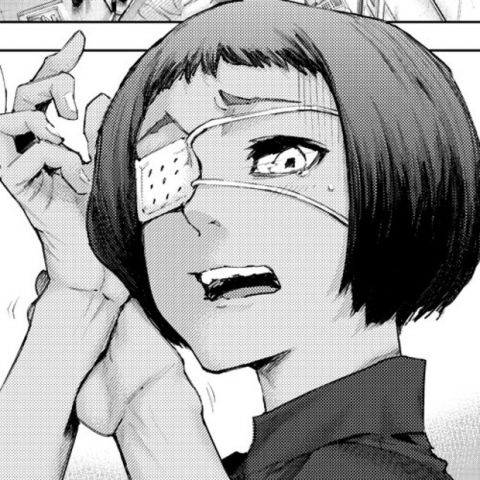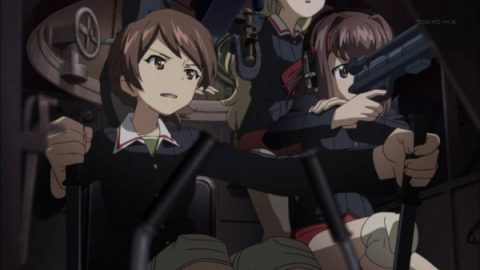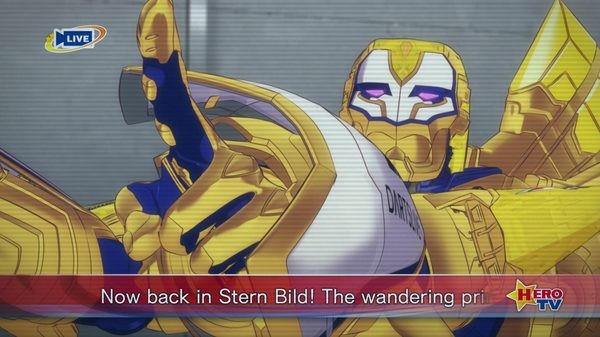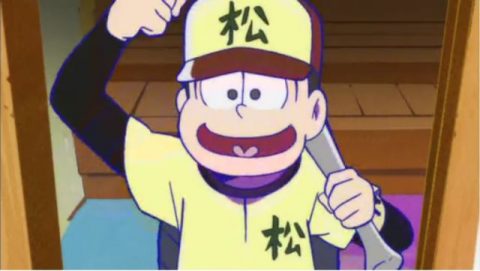The Demon Slayer Corps emerged victorious after a lengthy battle against the Upper Rank demons, but how was they able to prevail? In the story, demons are portrayed as beings with overwhelming, superhuman fighting power, so powerful that humans are no match for them. Many readers have likely felt that the fact that humanity was able to defeat such a powerful enemy, the demons, was a miracle in itself. However, a closer analysis of the work reveals that the Demon Slayer Corps' victory was no mere coincidence, and that they were able to defeat the demons not through individual fighting power, but through organizational strength. Factors that determine victory or defeat in a battle include the fighting power of each individual, but also teambuilding, which involves figuring out how to utilize that fighting power. In this article, I would like to explain the organizational theory that is essential for creating such an organization, based on the work "Demon Slayer: Kimetsu no Yaiba."
Muzan's camp is overwhelming in terms of individual strength

As mentioned at the beginning, Muzan Kibutsuji's camp boasts the strongest fighting power in the series. The source of this power is the individual strength of each demon, who possesses superhuman combat abilities. Even if their opponents are members of the Demon Slayer Corps, they are so powerful that they cannot be defeated without a Nichirin sword.
Upper Rank Demons Equal to Three Pillars

The Upper Rank demons, known as the Upper Rank Group, are said to possess overwhelming power, even among demons. It's said that their strength rivals that of three Pillars, the Demon Slayer Corps' most powerful group. Since the number of Upper Rank demons and Pillars is roughly the same, this also shows that Muzan's camp possesses three times the fighting power of the Demon Slayer Corps.
The Demon Slayer Corps is inevitably forced to work together

As you can see, the demons' fighting power is overwhelming, and the difference in their abilities makes them insurmountable for ordinary humans. Therefore, the Demon Slayer Corps inevitably needs to work together to defeat demons. If each member fought individually, they would inevitably be defeated, so they are forced to fight as a group.
Focus on Muzan's Team Building

As you can see, Muzan's camp is significantly weaker than the Demon Slayer Corps in terms of individual combat power, but how does their leader, Muzan Kibutsuji, manage to lead them? From here, we'll focus on Muzan's team building methods. As you'd expect from Muzan, his decisions are extremely cold-hearted and rational, so be sure to keep an eye out.
Ruling Through Fear Due to His Overwhelming Strength

Muzan rules the demons who follow him through overwhelming strength and fear. Muzan himself possesses exceptional combat abilities, so no subordinate dares to stand up to him. Many demons also became demons out of a desire for power, and Muzan, whose power surpasses their own, seems to be an object of admiration for many demons.
A meritocracy that tolerates subordinates killing each other

Furthermore, Muzan tolerates his subordinates killing each other. By having his subordinates kill each other, they improve their fighting ability through combat, and they inevitably train themselves to avoid being killed by their allies. In this way, by accepting an environment where each teammate is fighting each other, the fighting ability of each individual member inevitably improves. It's truly the ultimate meritocracy.
Fast Decision-Making Process

In this way, Muzan's team controls their team through fear, enabling a fast decision-making process. It's well-known that dictatorships in the real world are able to respond more quickly than democracies. For example, dictatorships like China responded more quickly to the coronavirus than democracies (though whether they responded correctly is another matter).
Focus on Ubuyashiki's Team Building

Meanwhile, what kind of team building did the Ubuyashiki faction, which leads the Demon Slayer Corps, do? From here, I would like to introduce the team building of the Ubuyashiki faction, which engaged in team building in stark contrast to Muzan's faction.
He may be powerless himself, but he unites his troops with his humanity

In contrast to Muzan, who commands demons through his own strength, Ubuyashiki Kagaya, the head of the Ubuyashiki family, is portrayed as a weak individual. As a result, the members of the Demon Slayer Corps who follow him value and follow him for his inner qualities, not his abilities. Even at his first appearance, he is described as a charismatic character, with "his voice and rhythmic movements putting those he speaks to at ease."
Knowing Each and Every Corps Member

Ubuyashiki cared deeply for each and every member of the Demon Slayer Corps, and until his death at the young age of 23, he regularly visited the graves of the Demon Slayer Corps members who had died in battle. He was also known to have detailed knowledge of each and every member's background and name, suggesting that even while leading a vast number of members, he always considered and acted with each and every one of them in mind.
Fighting among members is strictly prohibited

Furthermore, the Demon Slayer Corps has a culture that differs from the Muzan camp's culture of tolerating killing. Fighting or fighting among members is strictly prohibited (except for training, of course). Rather than individuals killing each other and improving their skills, all members are ingrained in the idea that they must help each other and unite as a strong team to fight against demons.
Minimize Damage

Because of this mindset, Ubuyashiki rarely adopts strategies like Muzan's, such as sacrificing his own troops. Instead, he often adopts a strategy of minimizing damage and conserving his fighting strength. Since a single unit of force is incapable of fighting demons, the need to unite as a team to oppose them may have fostered this strategic culture. However, even more than that, it could be said that this reflects his determination as a leader to "avoid unnecessary deaths."
Meritocracy vs. Teamwork

As such, in this work, Muzan's camp and Ubuyashiki's camp approach team building with completely different strategies. Their approach to team building can also be seen as the difference between foreign companies, which are based on meritocracy, and Japanese companies, which emphasize teamwork. From here, I would like to explain the characteristics of each team culture through the team building in this work.
Muzan's Camp at a Foreign Company

The idea of encouraging Muzan members to compete with each other and improve their individual fighting power is a corporate culture commonly found in foreign companies. Overseas, there is a tendency to emphasize individual ability over team unity, and policies that emphasize individual skill development are prominent. Furthermore, because they place a high value on rationality, they are also characterized by their agility, allowing the entire team to quickly implement the ideas of the top management.
The Sanyashiki Camp in Japanese Companies

On the other hand, the Sanyashiki camp's approach of respecting each other as a team and acting with unity is a long-standing culture unique to Japanese companies. Japanese companies prioritize team unity over individual ability, and tend to favor cooperative individuals over exceptionally talented individuals. This makes it difficult to develop a completely top-down culture, which can lead to weaknesses such as an inability to respond quickly.
Strengths of Foreign-Affiliated Companies

As mentioned earlier, foreign-affiliated companies have the advantage of making it easier to develop individual skills. Because they are a completely meritocratic society, rather than a seniority-based system, even new employees can quickly surpass their superiors and earn a high salary if they put in the hard work. This also has the advantage of making it easier to motivate each employee.
Weaknesses of Foreign-Affiliated Companies

On the other hand, the meritocracy of foreign-affiliated companies has the drawback of hindering team cooperation. In other words, since coworkers are nothing but rivals, some employees not only focus on self-improvement but also try to belittle other employees. This results in fewer employees who behave in a way that encourages rivalry, such as passing on their accumulated know-how to junior colleagues, which can lead to a weakening of team unity.
Strengths of Japanese Companies

In contrast, Japanese companies do not have an excessive meritocracy, so they do not actively promote talented employees. This eliminates the need to undermine other employees, creating a culture of teamwork and cooperation. One reason why Japanese manufacturers are so strong on a global scale is that the Japanese seniority-based system is somewhat well-suited to the manufacturing industry, which requires multiple people to work on projects over long periods of time to create high-quality products.
Weaknesses of Japanese Companies

On the other hand, Japanese companies, where cooperation with others is essential, are known to make quick decisions. Since each individual must be convinced and the system is not completely top-down, decision-making takes time. Furthermore, there is little emphasis on meritocracy, which can lead to some employees slacking off at work. Individual work efficiency will likely fall short of that of a meritocratic team.
Muzan's Mistake

As you can see, meritocracy and teamwork have their own strengths and weaknesses, and it's hard to say which is better. Therefore, even though the match should have been evenly matched, why did Muzan's meritocratic side end up losing in this film? From here, I'd like to consider the reasons for the defeat of Muzan's meritocratic side.
Mistake 1: Cutting already limited personnel

The reason Muzan's camp lost was undoubtedly due to further cutting into their already limited personnel. Muzan, intent on demonstrating his power, almost completely massacred the Lower Rank demons, who had yet to develop. While the Lower Rank demons were weak at the time, they were certainly a valuable fighting force, and with further training, they could have been expected to become even more valuable.
Mistake 2: Excessive meritocracy led to the collapse of the organization

As such, excessive meritocracy leads to the destruction of an organization. Ideas like "If you're strong, you can do anything," "If you improve your performance, you can do anything," and "Numbers are character" lead to infighting and the collapse of the organization. A certain used car dealership that recently made headlines was reported to have forced excessive meritocracy, leading to foolish behavior such as damaging a customer's car. It's likely that similar organizational distortions were occurring within Muzan's camp as well.
Mistake #3: Not Setting Up a Successor in Advance

Furthermore, Muzan's camp was an extremely top-down organization, which meant that it lost control once Muzan died. In contrast, the Ubuyashiki camp's members were so united that the transition to the next generation was smooth even after the death of their leader. A completely dictatorial system like this cannot withstand a prolonged absence of a leader. Muzan's failure to consider this and set up a successor was also a mistake.
Victory of Organizational Strength

In this way, the Demon Slayer Corps' victory in this work was not due to the abilities of individual members, but rather a victory of organizational strength honed under the overwhelming charisma of Ubuyashiki.
The Inevitability of History

Battles between different organizations are not decided by simple differences in military strength. The biggest factor in determining victory is team building—how to fully utilize that strength. Looking at the outcomes of many historical conflicts between powers, the winner is often the one with the strongest team, not the one with the strongest military strength.
Demon Slayer: Kimetsu no Yaiba: Courage Isn't the Only Thing You Can Learn

In this way, through the conflict between demons and humans throughout the story, Demon Slayer: Kimetsu no Yaiba also teaches us organizational theory for achieving victory. This work teaches us not only the "friendship," "effort," and "victory" that are typical of Jump manga, but also organizational theory.
Summary
So what did you think? This article introduced organizational theory through Demon Slayer: Kimetsu no Yaiba. Leaders have a variety of approaches to building a team, and there is no one right or wrong way. Team building that suits each member is essential. In this work, we have looked at team building by focusing on two leaders, Kibutsuji Muzan and Ubuyashiki Kagaya. Many other leaders have appeared in other animated works besides this one, so be sure to take a look at the team building of leaders who appear in other works as well!!




